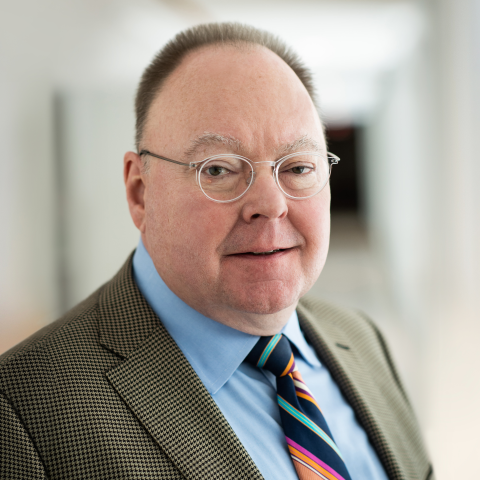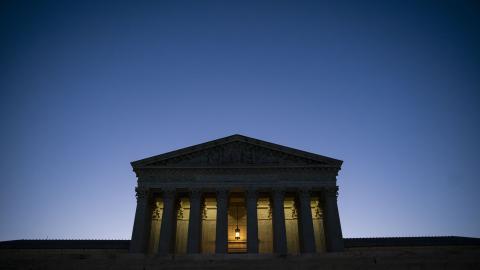Alexandre Lefebvre’s Liberalism as a Way of Life belongs to the school of Anglo-American political philosophy whose defining figure was Harvard’s John Rawls, author of A Theory of Justice and Political Liberalism. The Rawls school views the pursuit of justice as the cornerstone of a liberal society. But Lefebvre’s insightful account is also something of a departure, an original and at times exciting contribution to our understanding of liberalism—in the classical as opposed to the partisan political sense.
A professor at the University of Sydney, Lefebvre describes himself as a “liberal all the way down.” For him, as for Rawls, in deciding on laws and social arrangements that can perpetuate a just society, we must place ourselves behind a “veil of ignorance” in “the original position” of a member without attributes of such a society—that is, without knowledge of one’s place in it, whether one is rich or poor, favorably endowed with genetic and environmental gifts or encumbered by their absence. From this position, Rawls argues, reasonable people—knowing nothing about where they would fall in such a society—would write its rules in such a way as to favor the least advantaged among them, because once the veil is lifted, they could find they occupy exactly the least advantaged position.
No society has ever been created from such a premise, of course, and from a certain angle, it could look as if Rawls was rejecting all claims of justice on behalf of societies—or nation-states—that fail his test of putting the least advantaged first. Thus, one could read Rawls—and many did—as calling for radical reform and repudiating the legitimacy of states organized according to other priorities. But that’s not how Rawls saw it. His liberal theory of justice didn’t encompass a corresponding theory of injustice, according to which all societies reflecting deviations from reasonable conclusions behind the veil of ignorance were so disconnected from justice as to warrant condemnation. He thought they could improve.
In any event, Lefebvre notes, Rawls himself became somewhat dissatisfied with A Theory of Justice—notwithstanding its colossal success in his field and its standing as perhaps the most influential work of political philosophy of our time ever since its publication in 1971—on the grounds that it was “unrealistic.” So he turned to another question in his later work, Political Liberalism (1993). “How is it possible,” Rawls asked, “for there to exist over time a just and stable society of free and equal citizens, who remain profoundly divided by reasonable religious, philosophical, and moral doctrines?”
The answer is that competing but reasonable “comprehensive doctrines” at work among people could yield to a “liberal political conception” in which big-picture doctrines would be respected insofar as they were reasonable. For Rawls, a comprehensive doctrine is anything that spells out the details of how to live a good life: as an Orthodox Jew, say, or an Opus Dei Catholic, or a Communist, or a cultivator of Aristotelian virtue. Political liberalism would never seek that status of a “comprehensive doctrine,” but it could be the organizing and limiting principle according to which adherents of various doctrines could live in a stable society of free and equal citizens.
Lefebvre writes about Rawls’s evolution as a thinker very well. But his distinctive achievement is to note that nowadays Rawls needs turning around. That’s because, he says, “decade by decade, year by year, and day by day, liberal ideals and sensibilities have spread to every nook and cranny of the background culture of liberal democracies.” Further, “so ubiquitous is liberalism that it has performed that special trick of disappearance achieved only by omnipresence: to have become invisible by infiltrating everything.” Lefebvre’s conclusion: “Love it or hate it, we all swim—we positively marinate—in liberal waters. And here is my critique: the firewall that political liberalism draws between comprehensive doctrines and a liberal political conception obscures this changed landscape.” Lefebvre doesn’t quite say that liberalism has become a “comprehensive doctrine,” indeed the defining comprehensive doctrine, of modern democracies. But he ought to have.
It is true that liberalism offers no single formula for how to live a good life of the sort that once characterized states and their gods or ideologies. In that sense, it is not “comprehensive,” leaving to individual judgment or conscience many important questions about how to live. But liberalism does include at least one doctrinal element that overrides any and all presumptions of any and all comprehensive doctrines that might contradict it. That is the “reasonableness standard.” Liberals insist that adherents of comprehensive doctrines, whether they count themselves liberal or not, be “reasonable” in their adherence. Indeed, the word is central to Rawls’s research question—so much so that one could say he slipped his answer into the question itself. An unreasonable “comprehensive doctrine”—that is, a coercive or violent doctrine—cannot be part of a “just and stable society of free and equal citizens.” It is up to these contending comprehensive doctrines, almost all of which have historical associations with coercion and violent propagation, to modify themselves as necessary to become “reasonable.” Whether their adherents profess allegiance or opposition to a liberal political conception, their behavior must conform to it, or there will be adverse consequences for them.
Lefebvre has the acuity to see that, generally speaking, the behavior of individuals and organized groups in modern democratic societies is liberalism-compliant. He addresses his book mainly to those who identify themselves as through-and-through liberals in the sense of both the Rawls of A Theory of Justice and the Rawls of Political Liberalism— people who are, if not “liberals all the way down” like himself, then most of the way. Unfortunately, this nudges him into two related observational errors. As Peter Berkowitz notes, Lefebvre is too stingy in recognizing the genuineness of the liberalism of people who, for whatever reason, don’t identify themselves as liberals. As an exercise, Lefebvre would like liberals to imagine themselves in the “original position” when thinking about the fair distribution of social goods. That might be sufficient for a certain subset of liberals of the left-progressive sort, but if those were the only people practicing “liberalism as a way of life,” there would be no book to write about a society imbued with liberalism. The point is that most conservatives, most Orthodox and other Jews, most devout conservative and liberal Catholics, most evangelical Protestants, and many other non-progressives in Western societies, are nevertheless practicing liberals in daily life. They follow their “comprehensive doctrines” in a reasonable way—which is to say, within the overriding noncoercive liberal comprehensive doctrine. Although it may be tough for those steeped in the ways of Anglo-American political philosophy to accept, even the vast majority of Trump supporters are functionally liberal—not those who stormed the Capitol or those who think storming capitols is a good idea, but most everyone else. It may also be tough for people who spend their lives theorizing politics to accept that many Americans and other denizens of modern society don’t care very much about politics at all, and that’s fine.
His second observational miscue lies in his characterization of the gap between liberalism as the pursuit of justice or fairness and the actuality of the liberal world we live in. Rawlsian justice is what “liberals all the way down” want; but “liberaldom,” in Lefebvre’s coinage, is what we (all of us, whether we want it or not) actually have. The liberalism of liberaldom falls far short of what sweet reason would yield behind the veil of ignorance. In his own characterization, Lefebvre’s liberaldom is to liberalism as Kierkegaard’s “Christendom” is to Christianity—a complacent world in which we are all failures unable to live up to our professed ideals. In his view, liberals in liberaldom have much to answer for. He admits that he and his wife “spend a lot of money to send our daughter to private school” for the additional opportunity it provides, even though that might betray the egalitarianism required by Rawls’s conception of justice. “Now it’s your turn” to start your self-help program by making your own necessary admissions, he admonishes his liberal readers.
That is refreshingly honest, even though what such admissions really serve to illuminate is a key problem with Rawls’s approach to the pursuit of justice—which is that we will always strive to do more for those we love and who are in our own personal care, and that there is nothing unjust or immoral in that. Lefebvre is accordingly a little too hard on himself and on liberalism as we live it.
Enjoyed this article? Subscribe to Hudson’s newsletters to stay up to date with our latest content.



















